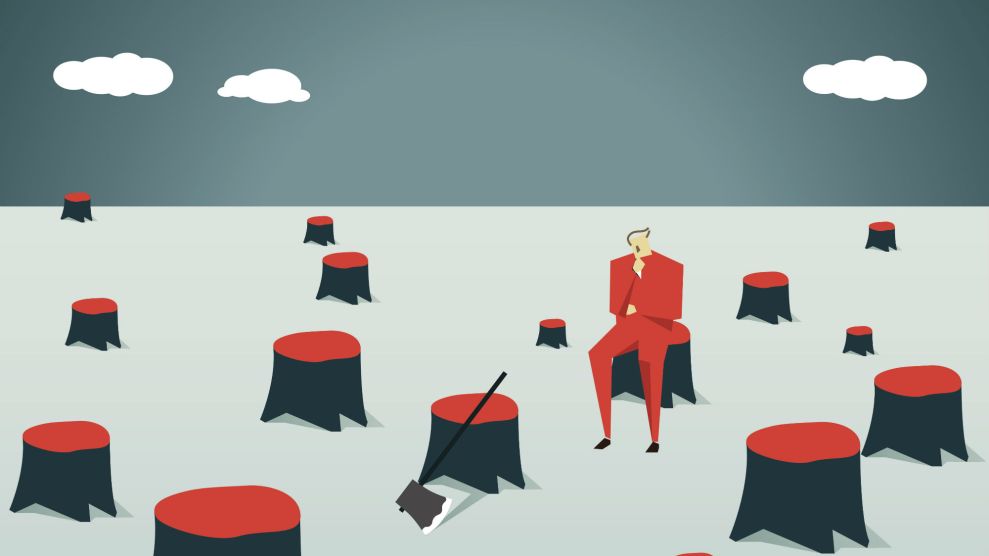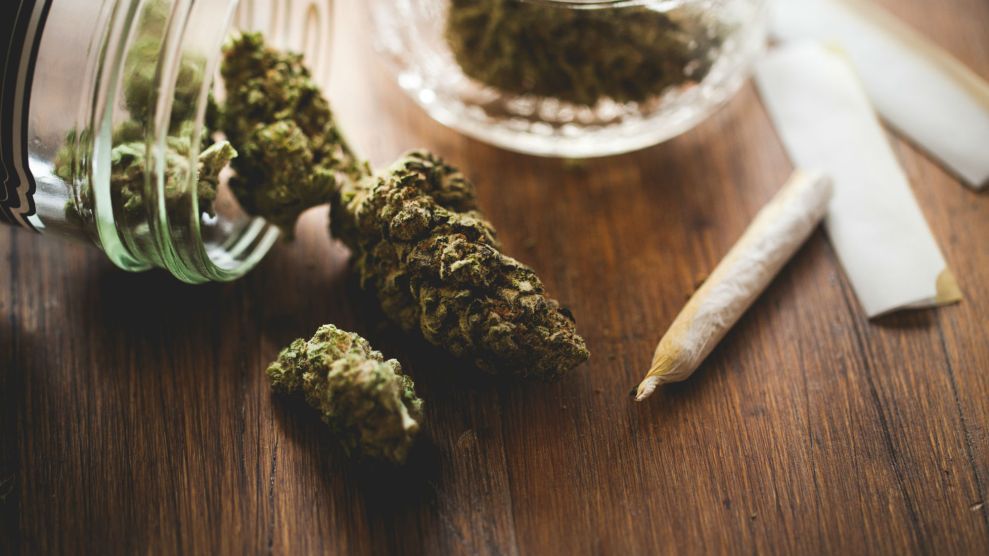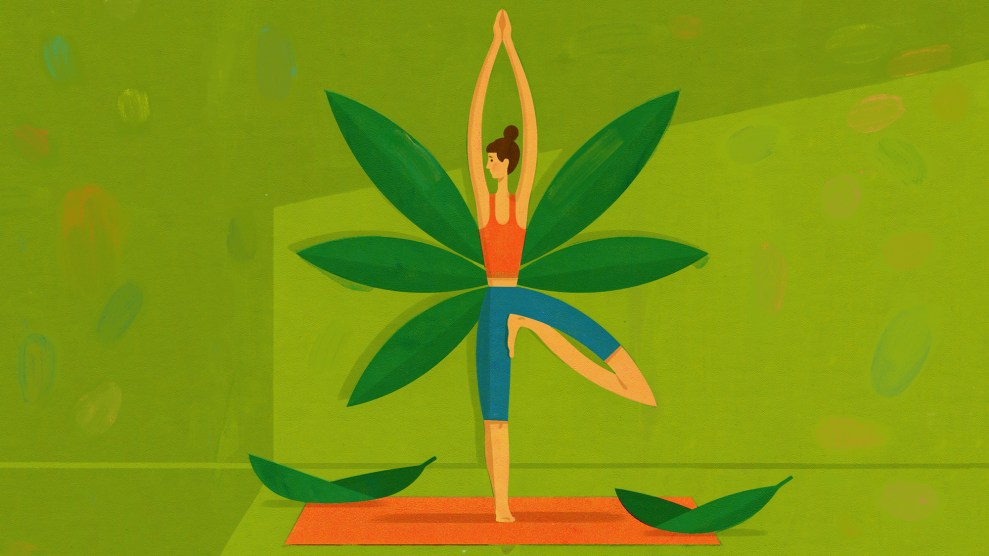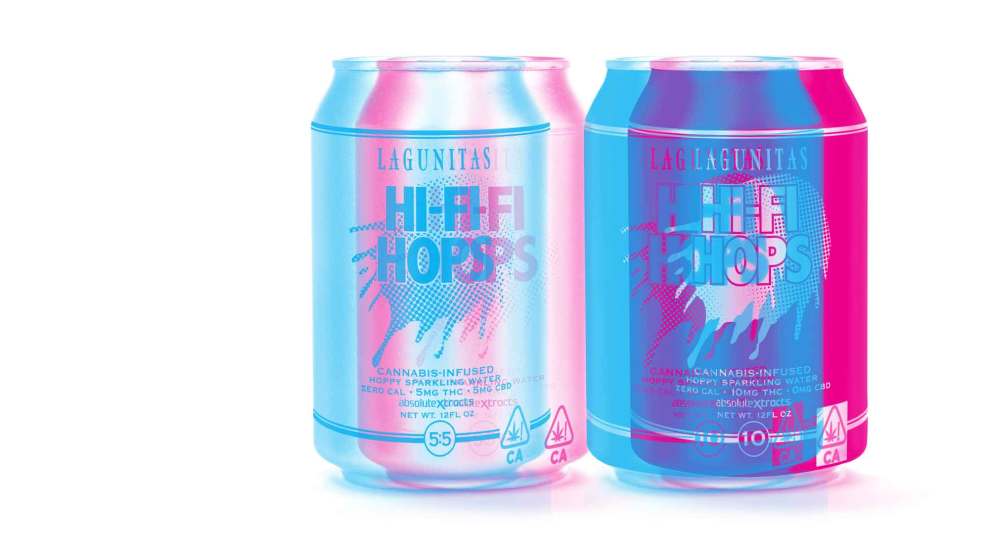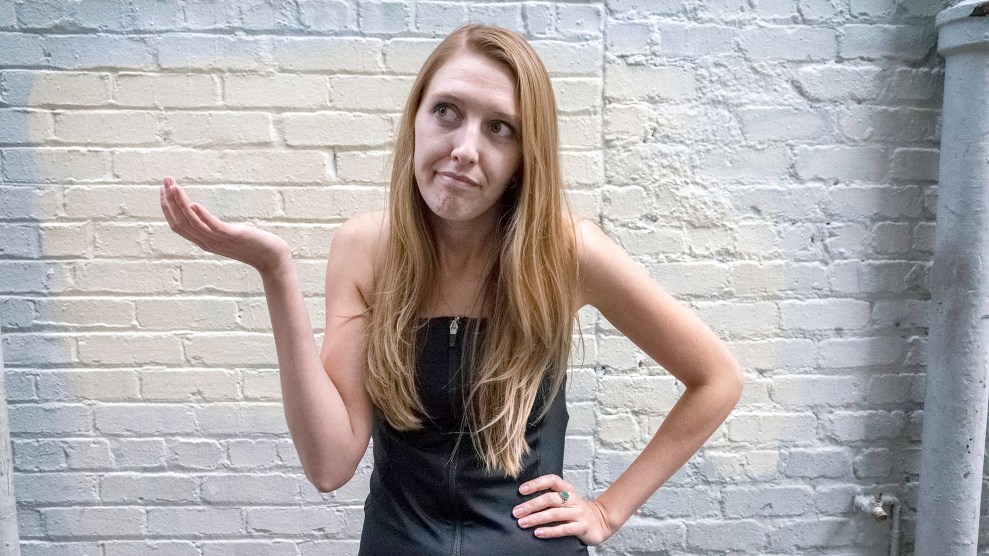
It's me, encased in Acabada's $275 CBD-infused jumpsuit.Mark Murrmann/Mother Jones
I went to SoulCycle, in a jumpsuit infused with drugs, to get my ass kicked.
For journalism.
It was a Thursday afternoon class, and Molli, our petite, yet vigorous instructor helped me set up my bike and then exposed introduced me to the rest of the class. “Jackie is wearing a CBD bodysuit!” she yelled over the blasting pop music. “She’s a journalist doing research.” The heads turned, and from the edge of the room, in my all-black sleeveless getup, I smiled with mild humiliation.
The next 45 minutes weren’t much better—though less embarrassment, more pain. And sweat. And pain again. But I wasn’t there for endorphins. This was an experiment: I had acquired the bodysuit from the good ol’ internet, and SoulCycle was one of several unpleasant evaluations I’d put the suit (and myself) through to see if it worked to reduce soreness, as its makers have claimed.
It turns out, that was not a good decision.
In the past year or so, CBD, a non-psychoactive molecule found in cannabis, has taken off and now it’s officially out of control. Cannabidiol is now in our coffee, our ice cream, our pizza, our hair products, our makeup, our toothpaste. It’s in our pets’ food. It’s in our bedsheets. It’s in our vaginas. I found that it is even, goddammit, in the most sacred of places: our athleisure wear.
The problem, experts tell me, is that there is very little scientific research to back up the claims of even a fraction of these products. In fact, many of the assertions you hear about them—that they can calm you down, that they can solve your arthritis, that they can treat cancer—are unproven. In fact, there’s only one CBD-based medication approved by the FDA, and it’s intended to treat two rare forms of epilepsy. “All [companies] have to do is slap CBD on it and people will buy it,” Margaret Haney, director of the Marijuana Research Laboratory at Columbia University’s Irving Medical Center, tells me. “Why would they go through the hassle of doing the scientific study, when they don’t have to to sell it?”
As a journalist who covers CBD and cannabis policy, I decided to give the CBD craze a fair trial. Maybe, I thought, there’s is something to it. I wanted, no needed, to see for myself. So I decided to go hardcore.
Earlier, I had come across a company called Acabada, which claims to be “the world’s first line of luxurious, CBD-infused proactive wear.” It says its products, which include sports bras, tank tops, and leggings, allow buyers “to feel amazing from the moment that you get dressed and throughout your toughest workout.” Though the company doesn’t provide any scientific research to prove its products work, the idea is that as you move, the clothes slowly release CBD stored inside the fabric. In theory, this reduces soreness during and after your workout.
In late November, I ordered Acabada’s $275 jumpsuit—a one-piece, zip-up, body-hugging thing infused with 18 grams of CBD—on sale for half off. It arrived in a white plastic package with a “warning”: “Contents may cause a new obsession.” I have to admit I was pretty impressed at first try-on: The suit was comfortable, sleek, and flattering on my figure (which, between us, is similar to that of a teenage boy). And it was quality-made. Wearing it, I felt like a sexy scuba diver.
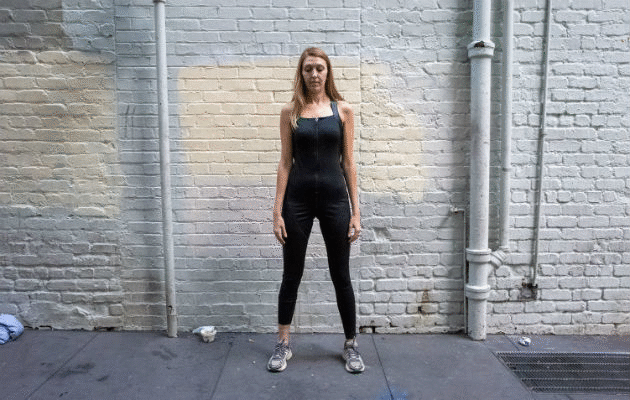
Here is a gif of me in the bodysuit. I’m sorry.
Mark Murmann/Mother Jones
But if I was going to find out if this hunk of polyester did anything more than trap farts, I’d have to put it to the test.
I devised a foolproof, very scientific experiment: I’d exercise for a week without the bodysuit, followed by a week of the same exercises with the bodysuit. And these wouldn’t be sissy exercises; I’d sprint on a track. I’d go to SoulCycle. I’d do yoga in my living room. I’d do lunges and squats and superman exercises, and boy, do I hate superman exercises. Each day, I’d rate my soreness. And for good measure, to make sure I was getting all the benefits, I’d wear the suit every day under my work clothes, all day, except for when I was washing and drying it (which, by the way, was a huge hassle because Acabada’s products can’t be machine washed or dried or wrung out; they must be hand-washed and drip-dried). The suit supposedly maintains its CBD for about 40 washes.
After nearly 100 total hours of sitting, running, cycling, and sweating in CBD, I can honestly say I felt no discernible effect—even a moderate one—with the CBD outfit. It did not cause “a new obsession.” I found that the workouts with the suit were not any easier or less painful than the ones without. Most of the days I just felt warm because I was wearing two layers of clothes. This was especially helpful when, wearing the bodysuit, I met up with some friends to wait outside in a line for a brunch spot with killer mimosas. It was especially unhelpful anytime I wanted to use the restroom.
In the graph below, you can see that overall, I was sorer in the week without the bodysuit. But it was also my first time working out in months; you’d expect me to be sore. Now look at the dark brown bars for Thursday, Friday, and Saturday. By then, my soreness levels had returned to normal, and they’re pretty similar to the days with the CBD suit (the orange bars). And in one instance, Friday, I was in worse shape with CBD assistance.
If you’re a science nerd (like me), you’re probably thinking, “But wait, this isn’t a controlled experiment! There are so many problems with it!” And, yes, reader, you are right—the biggest flaw being, of course, that like many women, I dress in athleisure wear more often than I actually work out, which is to say, before this experiment, I never worked out. In the first few days of exercise, I was very, very sore. (At the time, I recorded in my notes that “sitting in a chair or on a toilet is difficult…pretty sure I’ve never been this sore.”) So, yes, strictly speaking, due to my flawed experimental design, the results cannot be taken as definitive.
But, whatever, ok? The point is, I came into this with an open mind. But there’s absolutely nothing from my experience—nor from experts—to say that CBD-infused whatever is worth all the hype. (Justin Peters over at Slate came to the same conclusion after trying a whole slew of CBD products.)
I’m sure we’ll eventually find out more conclusive results about the power of CBD down the road; Haney, who is currently doing real, legitimate science and studying CBD’s impact on chemotherapy-induced neuropathic pain, emphasizes that CBD treatments do show medical promise. But she agrees the CBD consumer product trend has leaped way ahead of the science. “The products are just getting increasingly ridiculous, from a drug-development point of view,” she tells me. “You know, a CBD candle? How’s that getting into your body?” Haney also points out researchers haven’t established that CBD can enter your bloodstream through the skin, either. Sorry, Acabada.
I don’t know if I’ll ever go back to SoulCycle, but if I do, it won’t be with the CBD bodysuit (or any bodysuit, for Christ’s sake). Instead, I think I’ll reserve this one-piece human koozie for days I’m in the mood for feeling like a sexy scuba diver, staying warm, or sipping mimosas.

